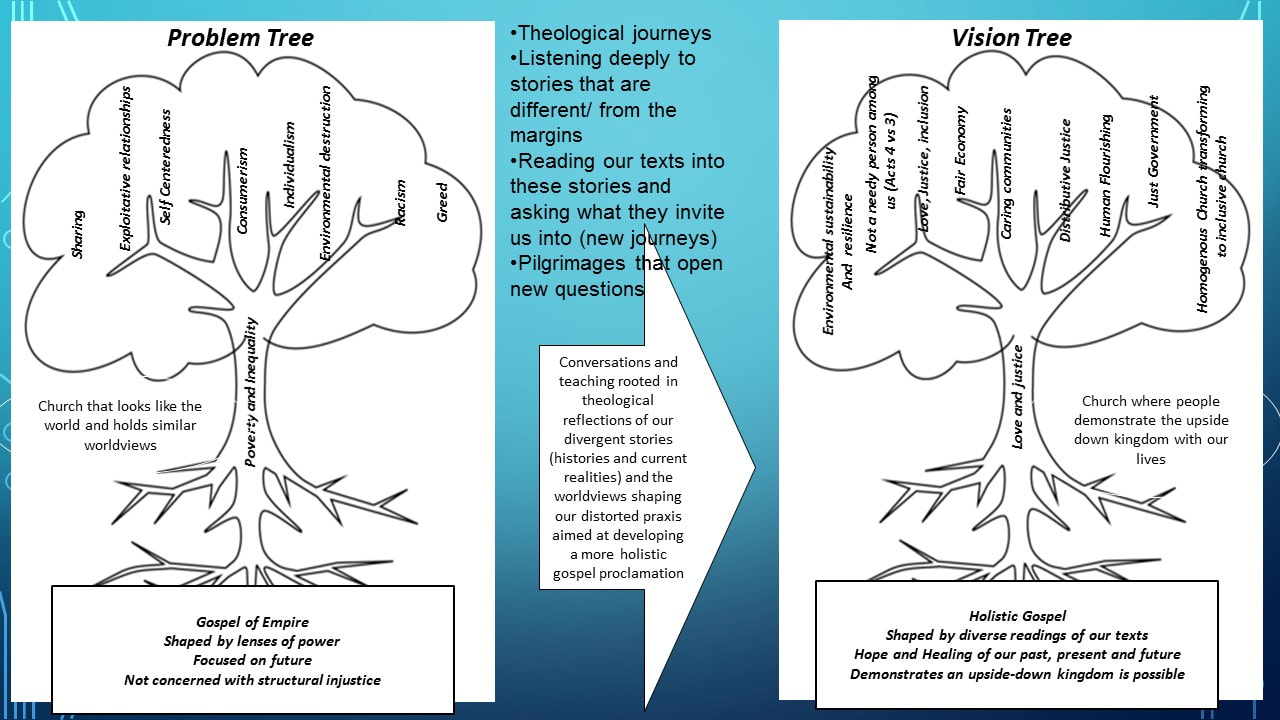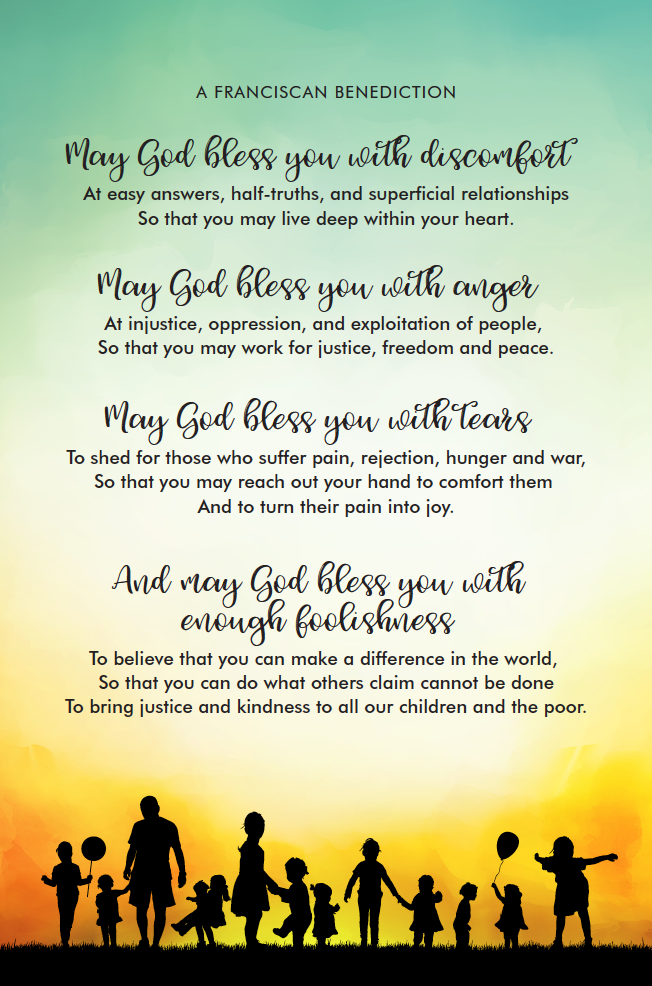|
I have increasingly become convinced that the churches I have been part of in the past have predominantly held a weak soteriology (view of salvation) focused on proclaiming exclusively how to get admission tickets to heaven while ignoring the full gospel demonstrated by Jesus in His birth, life, death, and resurrection. This has resulted in insipid, country-club-like religion which has left structural injustice in place. I have become convinced that this is not the full gospel, and that our kerygma (christian gospel proclamation) needs to include a proclamation and demonstration of God's shalom kingdom of righteousness, justice and peace.
NT Wright’s book, “Surprised by Hope” has been particularly helpful in helping me develop my understanding of eschatology and in response, our mission and understanding of the gospel. Central to the book is the message that exclusively hoping in life after death leaves Christian mission void of “change, rescue, transformation¸ (and) new possibilities within the world in the present”. Wright argues that this limited understanding of Christian hope leaves Christians believing that the only thing that matters is evangelism. This kind of Christianity is why Karl Marl’s famously paraphrased quote: “religion is the opium of the masses” is so widely proclaimed. Marx argued that economic realities prevent the poor from finding true happiness in this life, so religion tells them to accept this as their lot because they will find true happiness in the next life. Is this the true full gospel, which leaves structural injustice in place? I remember, as a child singing the hymn “All things bright and beautiful, All creatures great and small, All things wise and wonderful: The Lord God made them all… The rich man in his castle, The poor man at his gate, He made them, high or lowly, And ordered their estate.” As I reflect on this song, which shaped some of my early Christian theology, I have to declare - surely there is more to Christian hope than waiting until we die for our liberation. Surely it is not the job of the church to leave the rich and the poor in their assigned lot. God’s salvation plan of setting captives free has to be for this life. NT Wright contends that “As long as we see ‘salvation’ in terms of ‘going to heaven when we die’, the main work of the church is bound to be seen in terms of saving souls for that future. But when we see ‘salvation’, as the New Testament sees it, in terms of God’s promised new heavens and new earth, and of our promised resurrection to share in that new, and gloriously embodied, reality – what I have called ‘life after life after death’ – then the main work of the church here and now demands to be rethought in consequence.” So many of my homeless friends on the street talk about their desperation to be off the streets, free from their addictions, forgiven for all the things they have done and reconciled with their families. We have to believe with them that there is indeed “life before death” for these precious people. I may feel sad and at times helpless, perhaps even emotional, but I have to believe that God is surely able in this life to demonstrate resurrection as we build for the realm of God. Furthermore, for my friends suffering under the multiple intersectional oppressions of racism, sexism, Islamaphobia, xenophobia and other forms of othering, I have to believe that the gospel is good news to liberate us even from these systems. In the gospels “is the story of God’s kingdom being launched on earth as in heaven, generating a new state of affairs in which the power of evil has been decisively defeated, the new creation has been decisively launched, and Jesus’ followers have been commissioned and equipped to put that victory, and that inaugurated new world, into practice.” “To hope for a better future in this world – for the poor, the sick, the lonely and depressed, for the slaves, the refugees, the hungry and homeless, for the abused, the paranoid, the downtrodden and despairing, and in fact for the whole wide, wonderful and wounded world – is not something else, something extra, something tacked on to ‘the gospel’ as an afterthought.” (NT Wright) In my experience, it seems the more our gospel proclamation is focused on getting people to heaven, the more content it is to leave people in the many hells they find themselves in on earth.
0 Comments
“ Vox Victimarum vox dei: The cries of the victims are the voice of God. To the extent that these cries are not heard above the din of our political, cultural, economic, social and ecclesial celebrations or bickering, we have already begun a descent into hell”
(Bosch quoting Lamb) What a profound statement! If we are not hearing the cries of the poor, perhaps we are not fully hearing the voice of God. Linked to this, if presence with the poor is presence with God then absence from the poor is also absence from God. Separation from God is the essence of hell. Perhaps a primary reason we have so many hells on earth is exactly because we have created homes, communities, cities and nations without the presence and guidance of God found in the voice of the marginalised. The invitation has always been to lean into the voices of pain in both our history and the current reality shaped by that history. We have needed to listen deeply to the context for the invitation revealed in the wound in order to engage in the work of God in the world of brokenness. It has followed then that an important question to ask was: “where is there pain?” Perhaps if we could find the pain and hear its cry, we could hear the whispering invitation of God to be involved in its salve. The reality is that for many churches in the suburbs they have not heard the cries of the vulnerable among them. In South Africa’s unequal society, the rich and poor grow up alongside one another and the marginalised and vulnerable remain unseen. A new question emerging is: - How do we help the church in the suburbs see and hear the cries of the oppressed among them? Lets then pray this prayer together |
Archives
October 2020
quick links
All
|


 RSS Feed
RSS Feed